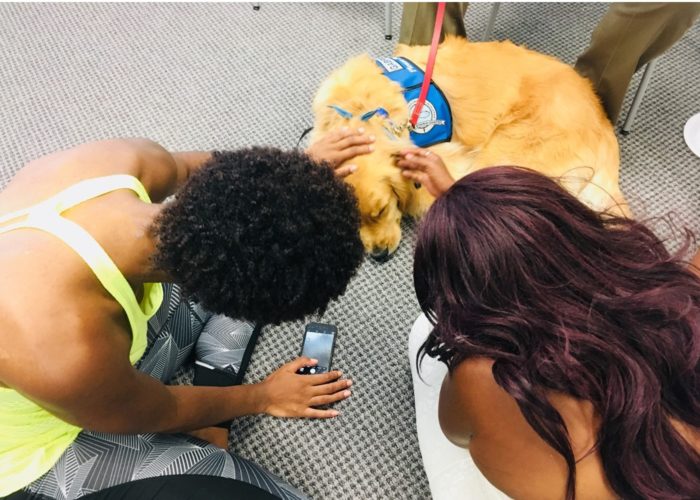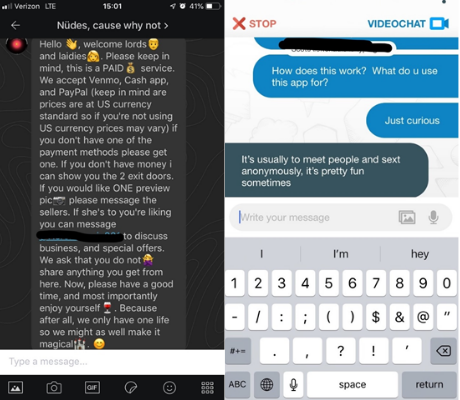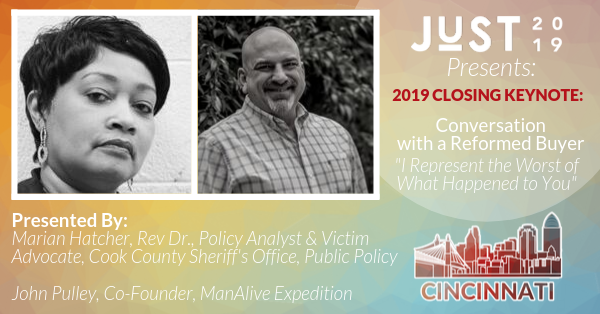by Dr. Meagan Corrado
Meagan Corrado, DSW, LCSW, will be presenting, “Storiez: Trauma Narratives with Youth” on Tuesday, October 15 at this year’s JuST (Juvenile Sex Trafficking) Conference in Cincinnati, OH. Visit justconference.org/just2019 to review our workshop agenda and for more information on how to register.
Read Meagan’s blog post below:
[clear-line]
In a world of dissension, conflict, abuse, and trauma, it is easy to feel discouraged. Individuals, families, and communities face tremendous obstacles. In addition to the individual adversities people strive to overcome, they also encounter community, cultural, and systemic barriers. Stories of trauma abound. But wherever there are stories of trauma, there are also stories of strength and resilience.
As we support trauma survivors in processing their experiences, it is important that we focus not only on the pain but also on the strength. For every story of falling, there is a story of getting back up. For every story of despair, there is a story of perseverance. For every story of abuse, there is a story of creative survival. If we look for stories of trauma, we will find them. But if we look for stories of strength and resilience, we will find those too.
I am a Doctor of Social Work, a Licensed Clinical Social Worker, and the creator of the Storiez Trauma Narrative Intervention. I am also a survivor of complex trauma. For the past ten years, I have provided individual, family, and group treatment to urban youth who have experienced trauma. I have heard many stories of adversity. These stories are jarring and painful. Colleagues often ask me how I survive the emotional and psychological impact of this intense work. My answer? I look for strength.
This starkly opposes our cultural paradigms and our systemic models. We are taught to blame and shame. We are taught to diagnose and dissect. We are taught to label and punish. This leads to a depressing, hopeless view of trauma recovery. It leaves both clients and helpers feeling defeated and disempowered.
But what if we looked for strength and resilience with the same fervor that we searched for pathology? What if we celebrated survival with the same energy that we devoted to diagnosis? What if we honored not only the narratives of shame but the narratives of empowerment?
In my attempt to provide a strengths-based approach to trauma treatment, I created the Storiez Trauma Narrative intervention. Storiez guides trauma survivors through the process of creating, voicing, and honoring their narratives. Storiez is grounded in trauma theory and social work principles. Trauma survivors reflect on the positive and negative elements of their stories, creatively express their experiences, and identify how they would like to shape their future.
Is there pain in these narratives? Yes. These narratives are riddled with danger and fear, but in every narrative, there is also strength. Wherever there are stories of trauma, there are always stories of strength and resilience.
[clear-line]
Meagan Corrado is a Doctor of Social Work and a Licensed Clinical Social Worker. She is the creator of the Storiez Trauma Narrative intervention and has authored seven books. She is a full-time faculty member at Bryn Mawr College’s Graduate School of Social Work and Social Research. She provides therapy to inner city youth in the Philadelphia and Camden, NJ areas. She earned her DSW from the University of Pennsylvania in 2016 and her Masters of Social Services from Bryn Mawr College in 2009. She specializes in work with children and teenagers who are survivors of complex trauma. Dr. Meagan is also a mixed media mosaic artist. She creates layered artwork to express inner emotions, personal experiences, and elements of her life narrative as a survivor of complex trauma.










